Happiness
SEARCH BY TITLE
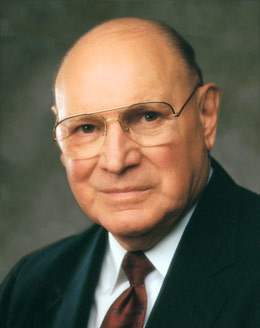 Come What May, and Love It
Come What May, and Love It
When I was young I loved playing sports, and I have many fond memories of those days. But not all of them are pleasant. I remember one day after my football team lost a tough game, I came home feeling discouraged. My mother was there. She listened to my sad story. She taught her children to trust in themselves and each other, not blame others for their misfortunes, and give their best effort in everything they attempted. When we fell down, she expected us to pick ourselves up and get going again. So the advice my mother gave to me then wasn’t altogether unexpected. It has stayed with me all my life. “Joseph,” she said, “come what may, and love it.” I have often reflected on that counsel. I think she may have meant that every life has peaks and shadows and times when it seems that the birds don’t sing and bells don’t ring. Yet in spite of discouragement and adversity, those who are happiest seem to have a way of learning from difficult times, becoming stronger, wiser, and happier as a result. There may be some who think that General Authorities rarely experience pain, suffering, or distress. If only that were true. While every man and woman on this stand today has experienced an abundant measure of joy, each also has drunk deeply from the cup of disappointment, sorrow, and loss. The Lord in His wisdom does not shield anyone from grief or sadness. For me, the Lord has opened the windows of heaven and showered blessings upon my family beyond my ability to express. Yet like everyone else, I have had times in my life when it seemed that the heaviness of my heart might be greater than I could bear. During those times I think back to those tender days of my youth when great sorrows came at the losing end of a football game. How little I knew then of what awaited me in later years. But whenever my steps led through seasons of sadness and sorrow, my mother’s words often came back to me: “Come what may, and love it.” How can we love days that are filled with sorrow? We can’t—at least not in the moment. I don’t think my mother was suggesting that we suppress discouragement or deny the reality of pain. I don’t think she was suggesting that we smother unpleasant truths beneath a cloak of pretended happiness. But I do believe that the way we react to adversity can be a major factor in how happy and successful we can be in life. If we approach adversities wisely, our hardest times can be times of greatest growth, which in turn can lead toward times of greatest happiness. Over the years I have learned a few things that have helped me through times of testing and trial. I would like to share them with you.
 Finding Joy in the Journey
Finding Joy in the Journey
I begin by mentioning one of the most inevitable aspects of our lives here upon the earth, and that is change. At one time or another we’ve all heard some form of the familiar adage: “Nothing is as constant as change.” Throughout our lives, we must deal with change. Some changes are welcome; some are not. There are changes in our lives which are sudden, such as the unexpected passing of a loved one, an unforeseen illness, the loss of a possession we treasure. But most of the changes take place subtly and slowly. This conference marks 45 years since I was called to the Quorum of the Twelve Apostles. As the junior member of the Twelve then, I looked up to 14 exceptional men, who were senior to me in the Twelve and the First Presidency. One by one, each of these men has returned home. When President Hinckley passed away eight months ago, I realized that I had become the senior Apostle. The changes over a period of 45 years that were incremental now seem monumental. This coming week Sister Monson and I will celebrate our 60th wedding anniversary. As I look back to our beginnings, I realize just how much our lives have changed since then. Our beloved parents, who stood beside us as we commenced our journey together, have passed on. Our three children, who filled our lives so completely for many years, are grown and have families of their own. Most of our grandchildren are grown, and we now have four great-grandchildren. Day by day, minute by minute, second by second we went from where we were to where we are now. The lives of all of us, of course, go through similar alterations and changes. The difference between the changes in my life and the changes in yours is only in the details. Time never stands still; it must steadily march on, and with the marching come the changes. This is our one and only chance at mortal life—here and now. The longer we live, the greater is our realization that it is brief. Opportunities come, and then they are gone. I believe that among the greatest lessons we are to learn in this short sojourn upon the earth are lessons that help us distinguish between what is important and what is not. I plead with you not to let those most important things pass you by as you plan for that illusive and nonexistent future when you will have time to do all that you want to do. Instead, find joy in the journey—now.
 Full Conversion Brings Happiness
Full Conversion Brings Happiness
Sometimes the word converted is used to describe when a sincere individual decides to be baptized. However, when properly used, conversion means far more than that, for the new convert as well as the long-term member. With characteristic doctrinal clarity and precision, President Marion G. Romney explained conversion: “Converted means to turn from one belief or course of action to another. Conversion is a spiritual and moral change. Converted implies not merely mental acceptance of Jesus and his teachings but also a motivating faith in him and his gospel. A faith which works a transformation, an actual change in one’s understanding of life’s meaning and in his allegiance to God in interest, in thought, and in conduct. In one who is really wholly converted, desire for things contrary to the gospel of Jesus Christ has actually died. And substituted therefore is a love of God, with a fixed and controlling determination to keep his commandments.” To be converted, you must remember to apply diligently in your life the key words “a love of God, with a fixed and controlling determination to keep his commandments.” Your happiness now and forever is conditioned on your degree of conversion and the transformation that it brings to your life. How then can you become truly converted? President Romney describes the steps you must follow: “Membership in the Church and conversion are not necessarily synonymous. Being converted and having a testimony are not necessarily the same thing either. A testimony comes when the Holy Ghost gives the earnest seeker a witness of the truth. A moving testimony vitalizes faith. That is, it induces repentance and obedience to the commandments. Conversion is the fruit or the reward for repentance and obedience.” Stated simply, true conversion is the fruit of faith, repentance, and consistent obedience. Faith comes by hearing the word of God and responding to it. You will receive from the Holy Ghost a confirming witness of things you accept on faith by willingly doing them. You will be led to repent of errors resulting from wrong things done or right things not done. As a consequence, your capacity to consistently obey will be strengthened. This cycle of faith, repentance, and consistent obedience will lead you to greater conversion with its attendant blessings. True conversion will strengthen your capacity to do what you know you should do, when you should do it, regardless of the circumstances.
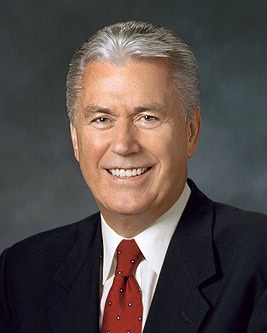 Have We Not Reason to Rejoice?
Have We Not Reason to Rejoice?
We all go through different life experiences. Some are filled with joy, and others with sorrow and uncertainty. I remember a time when things didn’t look good for our family when I was a child. It was in the winter of 1944, one of the coldest during World War II. The war front was approaching our town, and my mother had to take us four children, leave all our possessions behind, and join the millions of fleeing refugees in a desperate search for a place to survive. Our father was still in the military, but he and Mother had agreed that if they were ever separated during the war, they would try to reunite at the hometown of my grandparents. They felt this place offered the greatest hope for shelter and safety. With bombing raids during the night and air attacks during the day, it took us many days to reach my grandparents. My memories of those days are of darkness and coldness. My father returned to us unharmed, but our future looked extremely bleak. We were living in the rubble of postwar Germany with a devastating feeling of hopelessness and darkness about our future. In the middle of this despair, my family learned about The Church of Jesus Christ of Latter-day Saints and the healing message of the restored gospel of Jesus Christ. This message made all the difference; it lifted us above our daily misery. Life was still thorny and the circumstances still horrible, but the gospel brought light, hope, and joy into our lives. The plain and simple truths of the gospel warmed our hearts and enlightened our minds. They helped us look at ourselves and the world around us with different eyes and from an elevated viewpoint. My dear brothers and sisters, aren’t the restored gospel of Jesus Christ and our membership in His Church great reasons to rejoice? Wherever you live on this earth and whatever your life’s situation may be, I testify to you that the gospel of Jesus Christ has the divine power to lift you to great heights from what appears at times to be an unbearable burden or weakness. The Lord knows your circumstances and your challenges. He said to Paul and to all of us, “My grace is sufficient for thee.” And like Paul we can answer: “My strength is made perfect in weakness. Most gladly therefore will I rather glory in my infirmities, that the power of Christ may rest upon me”.
 Of Regrets and Resolutions
Of Regrets and Resolutions
Another regret of those who knew they were dying may be somewhat surprising. They wished they had let themselves be happier. So often we get caught up in the illusion that there is something just beyond our reach that would bring us happiness: a better family situation, a better financial situation, or the end of a challenging trial. The older we get, the more we look back and realize that external circumstances don’t really matter or determine our happiness. We do matter. We determine our happiness. You and I are ultimately in charge of our own happiness. My wife, Harriet, and I love riding our bicycles. It is wonderful to get out and enjoy the beauties of nature. We have certain routes we like to bike, but we don’t pay too much attention to how far we go or how fast we travel in comparison with other riders. However, occasionally I think we should be a bit more competitive. I even think we could get a better time or ride at a higher speed if only we pushed ourselves a little more. And then sometimes I even make the big mistake of mentioning this idea to my wonderful wife. Her typical reaction to my suggestions of this nature is always very kind, very clear, and very direct. She smiles and says, “Dieter, it’s not a race; it’s a journey. Enjoy the moment.” How right she is! Sometimes in life we become so focused on the finish line that we fail to find joy in the journey. I don’t go cycling with my wife because I’m excited about finishing. I go because the experience of being with her is sweet and enjoyable. Doesn’t it seem foolish to spoil sweet and joyful experiences because we are constantly anticipating the moment when they will end? Do we listen to beautiful music waiting for the final note to fade before we allow ourselves to truly enjoy it? No. We listen and connect to the variations of melody, rhythm, and harmony throughout the composition. Do we say our prayers with only the “amen” or the end in mind? Of course not. We pray to be close to our Heavenly Father, to receive His Spirit and feel His love. We shouldn’t wait to be happy until we reach some future point, only to discover that happiness was already available—all the time! Life is not meant to be appreciated only in retrospect. “This is the day which the Lord hath made … ,” the Psalmist wrote. “Rejoice and be glad in it.” Brothers and sisters, no matter our circumstances, no matter our challenges or trials, there is something in each day to embrace and cherish. There is something in each day that can bring gratitude and joy if only we will see and appreciate it.
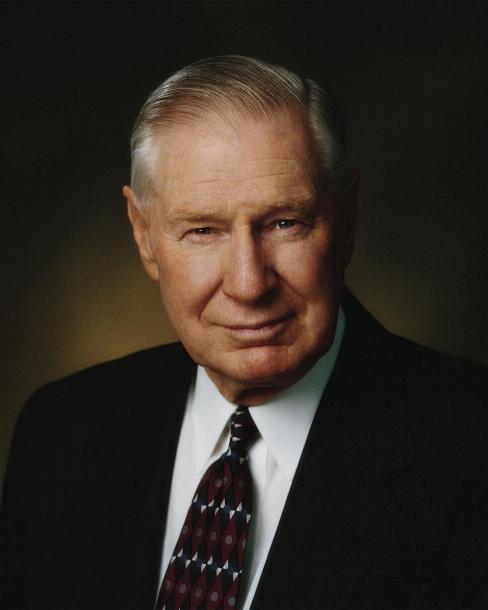 Our Search for Happiness
Our Search for Happiness
In summation, our search for happiness largely depends on the degree of righteousness we attain, the degree of selflessness we acquire, the amount and quality of service we render, and the inner peace that we enjoy. We also have some external sources of happiness, including those loved ones and friends whose smiles and regard mean so much to us—in my case, the members of my family who are here today. Our destinies are bound by ties of common interest and sympathy to a host of others, unknown to us personally, within and without the Church. Some of you here today may have detoured from the road to peace and happiness through transgression. With all my heart I urge you to begin the process of clearing up any problem so that you may again enjoy a quiet and a peaceful conscience. When we truly repent of our sins, the Lord has promised, “I, the Lord, remember them no more”. May I suggest a further requisite in the continuing quest to live happily every hour, every day, every month, and every year of our lives. The golden pathway to happiness is the selfless giving of love—the kind of love that has concern and interest and some measure of charity for every living soul. Love is the direct route to the happiness that would enrich and bless our lives and the lives of others. It means that you show love even to your enemies, “bless them that curse you, do good to them that hate you, and pray for them which despitefully use you”. In so doing you will be fulfilling the greater commandment to love God Himself and to enjoy His love. You will soar above the ill winds that blow, above the sordid, the self-defeating, and the bitter. You have the promise that “your whole bodies shall be filled with light, and there shall be no darkness in you; and that body which is filled with light comprehendeth all things”.
 The Race of Life
The Race of Life
Everywhere people are in a hurry. Jet-powered aircraft speed their precious human cargo across broad continents and vast oceans so that business meetings might be attended, obligations met, vacations enjoyed, or families visited. Roadways everywhere—including freeways, thruways, and motorways—carry millions of automobiles, occupied by more millions of people, in a seemingly endless stream and for a multitude of reasons as we rush about the business of each day. In this fast-paced life, do we ever pause for moments of meditation—even thoughts of timeless truths? When compared to eternal verities, most of the questions and concerns of daily living are really rather trivial. What should we have for dinner? What color should we paint the living room? Should we sign Johnny up for soccer? These questions and countless others like them lose their significance when times of crisis arise, when loved ones are hurt or injured, when sickness enters the house of good health, when life’s candle dims and darkness threatens. Our thoughts become focused, and we are easily able to determine what is really important and what is merely trivial. I recently visited with a woman who has been battling a life-threatening disease for over two years. She indicated that prior to her illness, her days were filled with activities such as cleaning her house to perfection and filling it with beautiful furnishings. She visited her hairdresser twice a week and spent money and time each month adding to her wardrobe. Her grandchildren were invited to visit infrequently, for she was always concerned that what she considered her precious possessions might be broken or otherwise ruined by tiny and careless hands. And then she received the shocking news that her mortal life was in jeopardy and that she might have very limited time left here. She said that at the moment she heard the doctor’s diagnosis, she knew immediately that she would spend whatever time she had remaining with her family and friends and with the gospel at the center of her life, for these represented what was most precious to her. Such moments of clarity come to all of us at one time or another, although not always through so dramatic a circumstance. We see clearly what it is that really matters in our lives and how we should be living. Said the Savior: “Lay not up for yourselves treasures upon earth, where moth and rust doth corrupt, and where thieves break through and steal: “But lay up for yourselves treasures in heaven, where neither moth nor rust doth corrupt, and where thieves do not break through nor steal: “For where your treasure is, there will your heart be also.” In our times of deepest reflection or greatest need, the soul of man reaches heavenward, seeking a divine response to life’s greatest questions: Where did we come from? Why are we here? Where do we go after we leave this life? Answers to these questions are not discovered within the covers of academia’s textbooks or by checking the Internet. These questions transcend mortality. They embrace eternity.
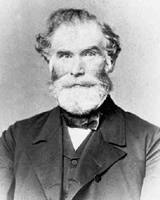 The Spirit and The Sacrament
The Spirit and The Sacrament
“That man or woman who has a cheerful countenance and a glad heart, has a pure heart.” Now it is an ordinance not calculated to cast us down, [or] cause us to be very sorrowful, to weep and mourn as we have seen among the religious world. When they meet together they weep and mourn frequently when partak[ing] of these symbols. It is a special time of solemnness with them in the outward man, in the manifestations of their feelings one to another. But our Savior has told us in new revelations given, that we should meet together to partake of this ordinance with cheerful [a] countenance [and a] glad heart. This is indicative of [a] pure heart, for that man or woman who has [a] cheerful countenance [and a] glad heart, has [a] pure heart. Hav[ing] pureness of heart, conscience before God will produce cheerfulness, gladness, joy. And sorrow and mourning will flee away. [It is] just as much our privilege to have joy [and] consolation in the Holy Ghost and to be filled to overflowing with rejoicing. … Let’s then if we are pure in heart rejoice before God. Let nothing hinder our joy. Let not the cares of this life, the troubles there or the perplexities and difficulties we have to encounter prevent us from rejoicing in Jesus, in God our Father, in the great plan of redemption, in the great work of [the] last dispensations that we are living, so near the winding-up scene, when the time is near at hand when wickedness will be banished from this creation we inhabit and righteousness be spread abroad from one end of earth to the other, as waters cover [the] great deep.
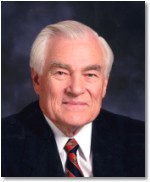 Ten Ideas to Increase Your Spirituality
Ten Ideas to Increase Your Spirituality
I want to ask you to do something right now—smile. Force it if you have to. Some people smile very naturally. Some may be happy but haven’t told their faces about it yet. Your level of spirituality is also directly related to how well you fill the Lord’s commandments to “Be of good cheer” and “Lift up your heart and rejoice”. How many times in the scriptures did the Lord command us to be of good cheer? He didn’t say, “Be of good cheer if everything is going well, if you have enough money to pay all your bills, if your biorhythms are up,” or whatever. No. For us to be of good cheer is a commandment and not merely a suggestion. Here is a practical suggestion that has helped me in the past. Take a sheet of paper and write on it a list of the blessings you consider to be important in whatever order they come to your mind. Then place them in order of priority. What is your most precious blessing? Probably somewhere near the top of your list will be the big “Four Fs”—your faith, family, freedom, and friends. Note how many blessings you have at the top of the list for which you would hope to have the courage to give up your mortal lives to protect. Then note how far down the list you go before you come to any blessing that you can buy for money. The most precious blessings are without price; they are priceless. On those days when you don’t feel like smiling, take out your list, read it, and then you can smile very naturally.
